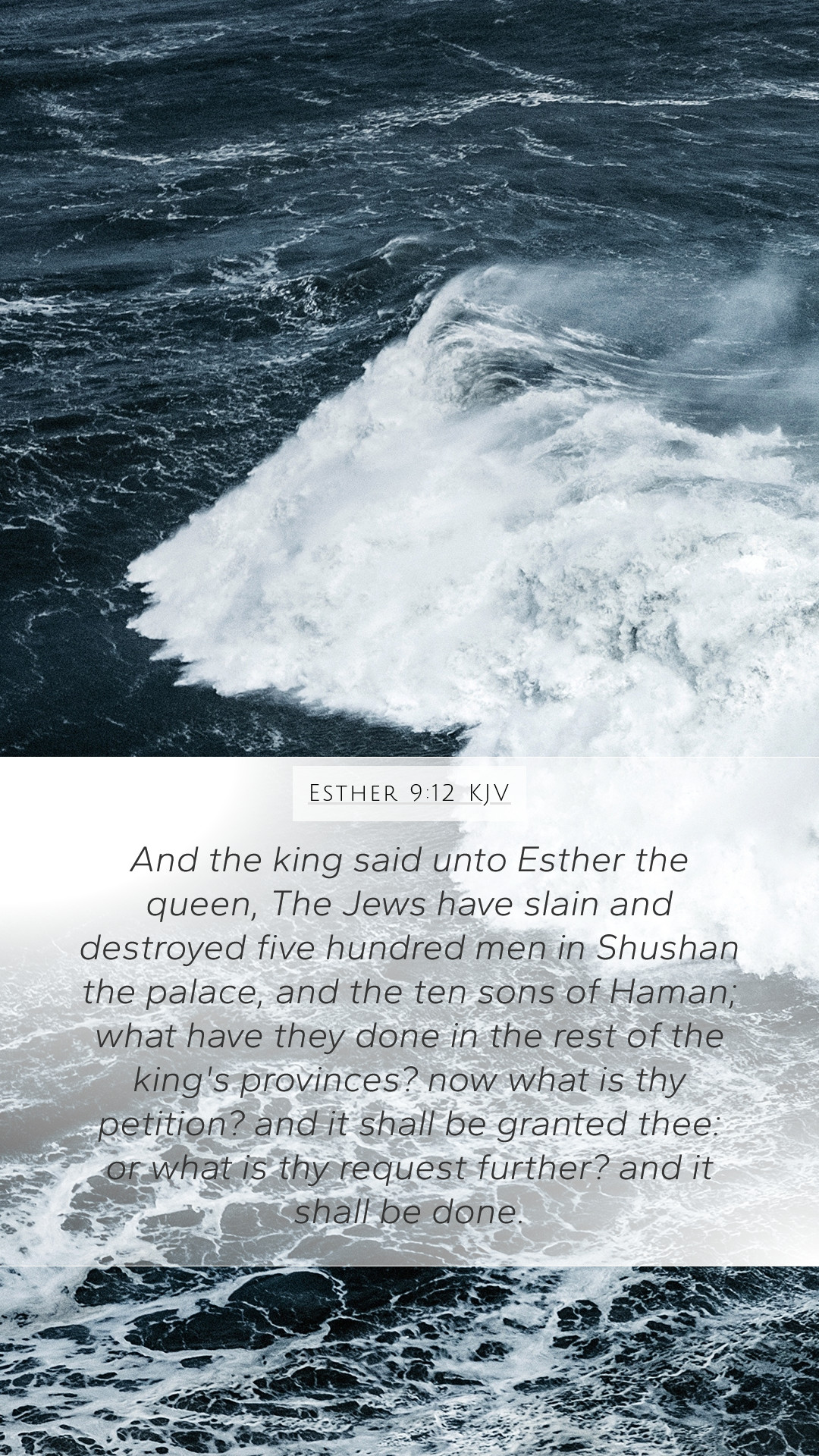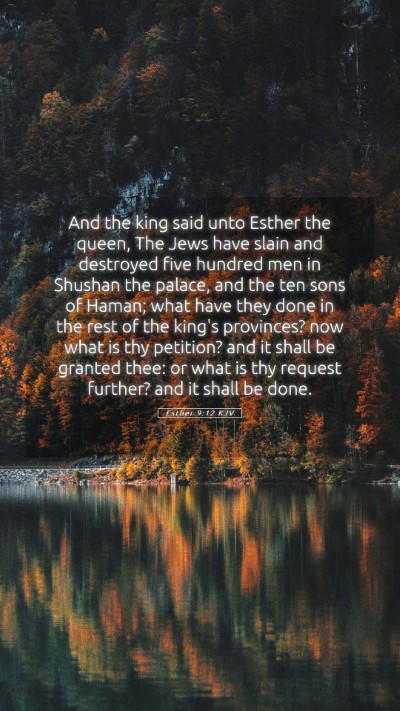Bible Verse Commentary: Esther 9:12
Esther 9:12 reveals a significant moment following the deliverance of the Jews from destruction during the time of Xerxes. The verse reads:
"The king said to Queen Esther, ‘In the citadel of Susa, the Jews have killed and annihilated five hundred men and the ten sons of Haman. What have they done in the rest of the king's provinces? Now what is your petition? It will be given you. What is your request? It will also be granted.’"
Summary and Analysis
This verse encapsulates the aftermath of the Jewish victory over their enemies, highlighting the approval of King Xerxes regarding the action taken by the Jews. Such remarks from a king indicate not only the significance of their victory but also the royal endorsement of their actions, which adds to the narrative of God's deliverance.
Understanding the Verse
According to Matthew Henry, this verse showcases the power and justice of God as He turns the tables against those who conspired to harm His people. The killing of Haman's sons further represents a complete victory and removal of any future threats against the Jews. This fulfillment of justice reflects the broader theme of divine retribution evident throughout Scripture.
Albert Barnes emphasizes that the count of the slain signifies the magnitude of the conflict and the serious nature of the threat against the Jewish people. The king’s question about the events in the rest of his provinces hints at a broader occurrence, encouraging Esther to show the consequences of Haman’s plot and the importance of justice upheld by the king’s authority.
Adam Clarke adds context to the significance of the king’s response. This suggests not only recognition of the Jewish efforts but also positions Esther’s role as pivotal in communicating the events, thereby showcasing her influence within the kingdom.
Key Themes
- Divine Deliverance: The verse underscores God's ability to intercede and protect His people from harm.
- Royal Authority: The king's approval of Esther’s request reveals the importance of righteous governance, which reflects God’s justice on earth.
- Justice and Retribution: The annihilation of enemies symbolizes the consequences of opposition against God’s chosen.
Application of the Verse
For readers today, Esther 9:12 serves as a reminder of the power of prayer, advocacy, and standing firm in faith during times of oppression. This can encourage believers to trust in God's justice and timing in their struggles. Additionally, Esther’s actions model how one can approach authority to seek justice for their people.
Cross References
- Exodus 17:14-16 - The Lord's promise of victory against enemies.
- Psalms 37:10-11 - Assurance of the meek inheriting the earth.
- Proverbs 21:15 - Justice is a joy to the righteous but terror to evildoers.
Conclusion
In conclusion, Esther 9:12 encapsulates the theme of divine intervention and the fulfillment of justice against threats to God's people, demonstrating the importance of faithfulness and advocacy. For anyone studying Scripture, understanding such verses can deepen one’s insight into the overarching narrative of God’s providence in history.
Further Study
For those involved in Bible study groups or seeking online Bible study resources, this verse serves as an excellent illustration for discussing themes of justice, faith, and God’s providence. Engaging in Bible study lessons that explore the historical context and personal applications can bring clarity and understanding to complex passages like this.


